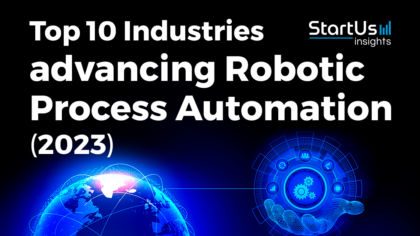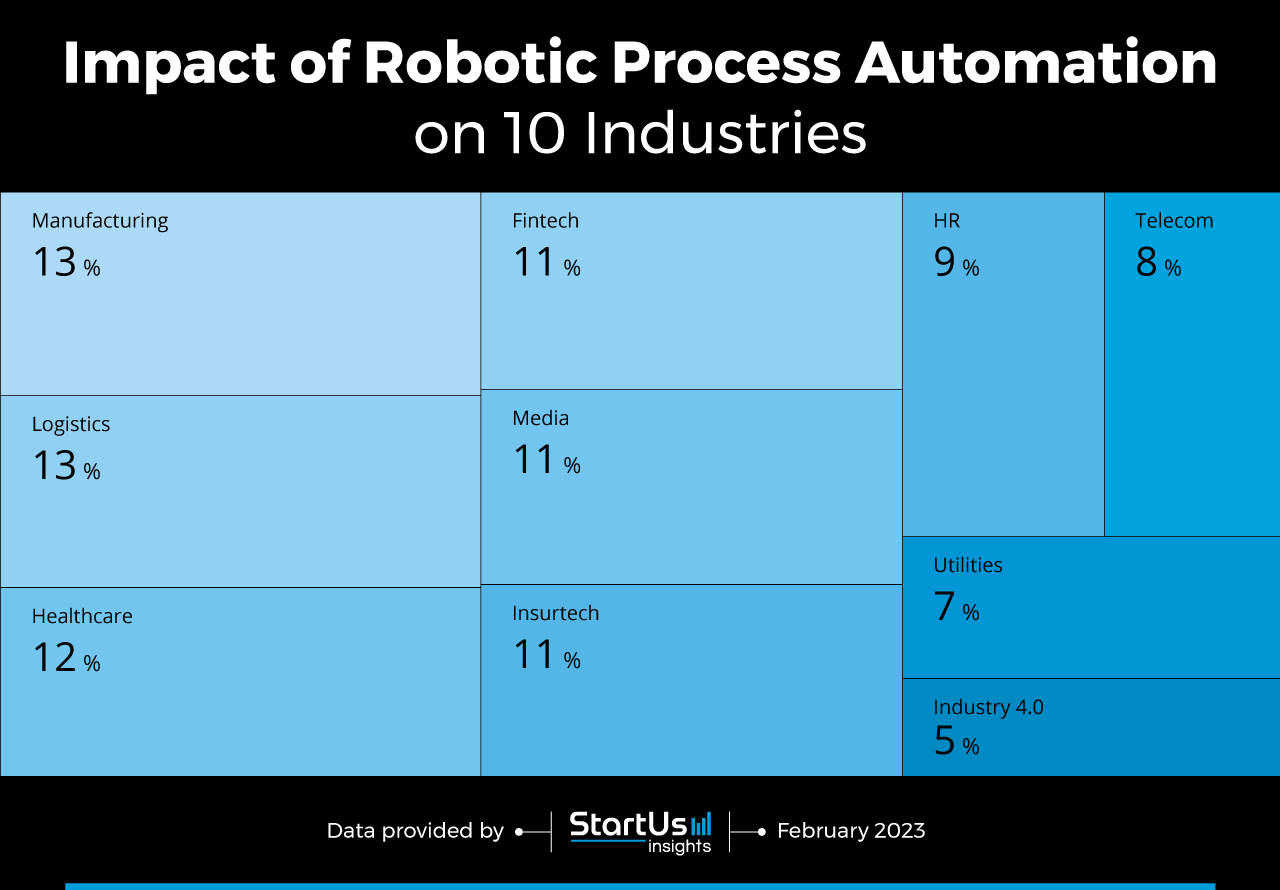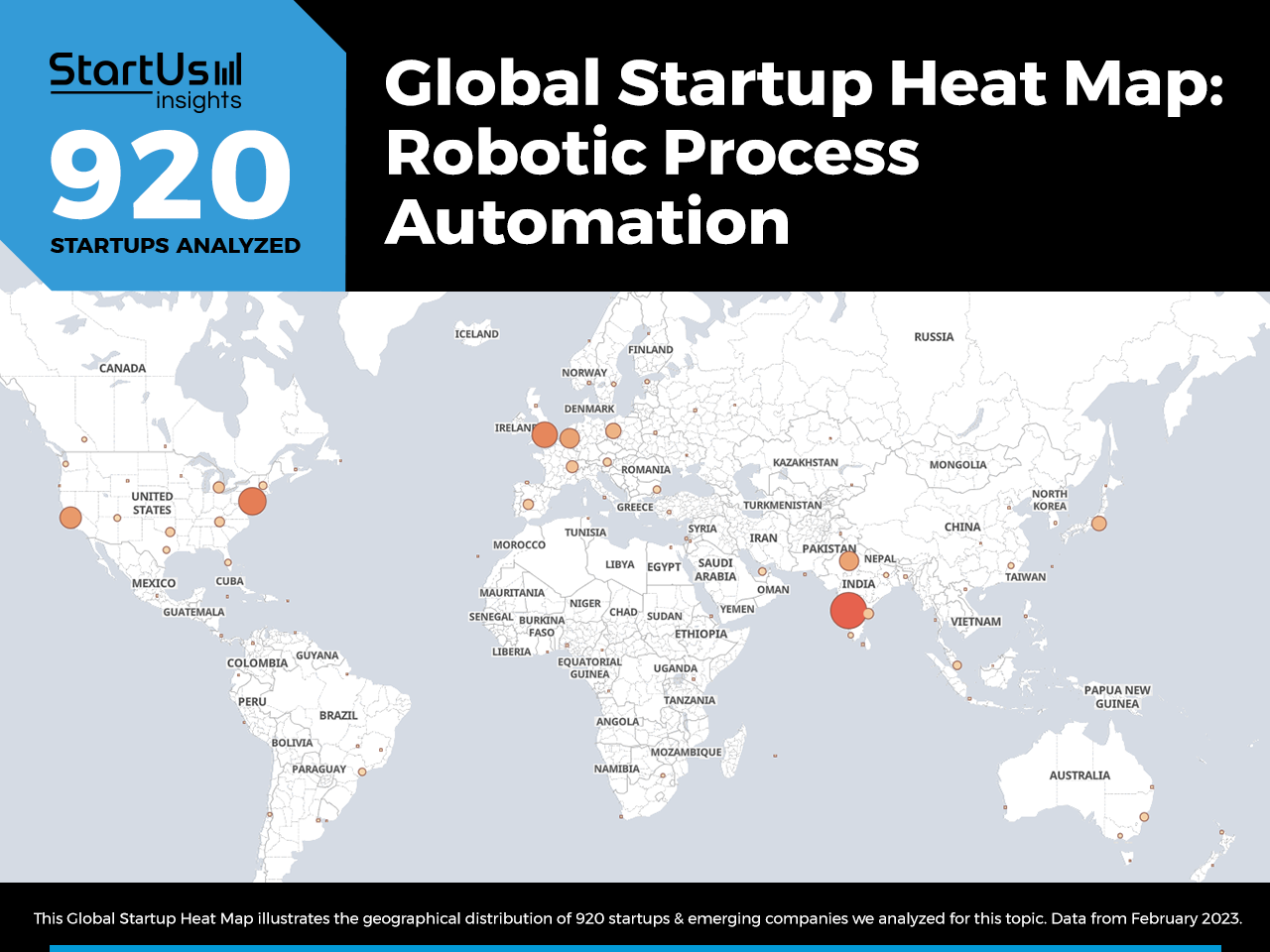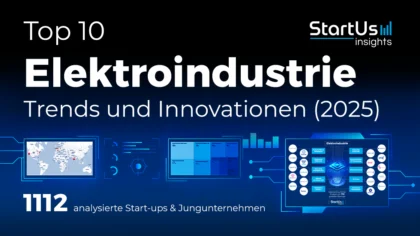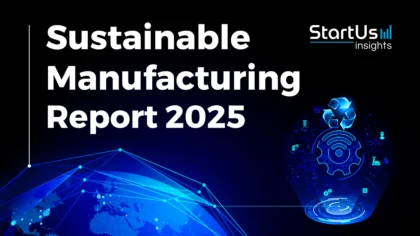Many industries are embracing digitalization and automation. Robotic process automation (RPA), along with artificial intelligence (AI) and advanced robotics, is enabling this transition. RPA automates all kinds of business processes, saving time and costs. This is why companies are integrating robotic process automation solutions into their systems.
We give you data-driven innovation insights based on our analysis of 920 RPA startups & technologies so that you do not miss out on emerging robotic process automation solutions. This time, you get to discover 10 hand-picked robotic process automation use cases impacting 10 industries.
Tree Map reveals the Impact of Robotic Process Automation Use Cases on 10 Industries
The Tree Map below illustrates the impact of Robotic Process Automation use cases on 10 industries in 2023 and 2024. For example, manufacturing and Industry 4.0 companies utilize the technology to streamline operations and increase profitability. The strength of the technology lies in its impact on optimizing processes across business verticals.
RPA speeds up the interpretation of structured and unstructured data to generate insights for companies across industries. For customer-facing industries such as utilities or healthcare, it improves the quality of accuracy of customer engagement. For industries like fintech, insurtech, and telecom, it simplifies compliance reporting as well.
Global Startup Heat Map covers 920 Robotic Process Automation Startups & Scaleups
The Global Startup Heat Map below highlights the global distribution of the 920 exemplary startups & scaleups that we analyzed for this research. Created through the StartUs Insights Discovery Platform that covers 3 790 000+ startups & scaleups globally, the Heat Map reveals that India has a high concentration of RPA startups, followed by the USA and UK.
Below, you get to meet 10 out of these 900+ promising startups & scaleups as well as the solutions they develop. These 20 robotic process automation use cases are hand-picked based on criteria such as founding year, location, funding raised, & more. Depending on your specific needs, your top picks might look entirely different.
Explore 10 Robotic Process Automation Use Cases
1. Manufacturing
The manufacturing industry uses different kinds of robots to automate tasks across the factory floor. RPA solutions act as software robots and complement physical robots in automating the industry. They further improve the utilization of factory robots with features like remote programming of robots or multi-robot synchronization.
Manufacturing startups are increasingly using RPA to automate and optimize tasks ranging from material transfer and cutting to product packaging. RPA solutions overcome specific technical challenges that vary by product, enabling all kinds of manufacturers to improve profits.
robonext simplifies Production Planning
Belgian startup robonext creates virtual robots to automate manufacturing operations. The startup’s virtual robots automate work order processing, instruction management, and quality reporting. This provides factory managers with a comprehensive picture of the factory floor to facilitate production planning. Moreover, the RPA solutions also speed up text-related work such as documenting processes, generating bills, and managing safety reports.
2. Logistics
RPA solutions provide a comprehensive overview of processes that span different regions or teams. This is why logistics and supply chain companies also find great value in implementing robotic process automation. Such solutions automate the tracking of goods across supply chains as well as within warehouses. Moreover, they integrate tracking with other time-consuming tasks such as order processing, documentation, and inventory control — providing warehouse managers with complete control of their operations.
Scrrevo provides Voice-powered Order Automation
Italian startup Screevo builds a voice-powered order automation platform. It utilizes RPA and natural language processing (NLP) for remote control of any connected equipment with voice commands. The platform supports over 40 languages and adapts to domain-specific words. Moreover, it functions in noisy environments and has low latency. The platform enables manufacturers to remotely monitor productivity, perform order planning management, and efficiently handle maintenance reports.
3. Healthcare
The healthcare industry relies on manual and repetitive tasks such as documentation or triage. RPA solutions automate these and other administrative tasks to free up healthcare workers’ time for patient care. As the industry adopts digitalization, RPA is enabling the translation of unstructured medical data into clinical insights.
This improves the accuracy of clinical reporting and also aids infection control measures. RPA also automates certain aspects of patient engagement and remote care, providing patients with the answers they need.
Element5 offers Home Care Automation
US-based startup Element5 provides end-to-end workflow automation for healthcare. The startup’s solution uses RPA to automate administrative tasks in post-acute care. It identifies bottlenecks, minimizes errors, and frees up healthcare workers for more critical tasks. Element5’s digital assistants work with existing systems with minimal to no human intervention and increase revenues for home healthcare agencies.
4. Fintech
Banks are embracing digitalization for manual tasks like checking documents for underwriting or opening new bank accounts. Robotic process automation examples in finance automate these tasks, saving costs and time. By reducing false positives and biases, they also improve the quality of their services. B2B-facing solutions automate tasks like invoice validation and tax filing for companies of all sizes. Fintech startups are also using RPA to simplify compliance reporting and offer multi-banking to their customers.
Cobase enables Multibanking
Dutch startup Cobase develops a multi-banking platform. The platform links multiple bank accounts, allowing companies to monitor all of their transactions in a single place. It also features modules for payments, cash management, in-house banking, liquid forecasting, and treasury. These features, along with the integration of enterprise resource planning (ERP) and transaction reporting systems, further increase financial operational efficiency.
5. Media
In the media industry, RPA automates the creation of content ranging from news summaries and sports visualizations to advertising. For online media companies, suggesting the most relevant content to their customers is important. By auto-extracting and analyzing metadata, RPA solutions allow over-the-top (OTT) platforms to offer personalized recommendations and make content easily searchable. Lastly, the industry uses RPA to handle service requests and customer engagement, which frees up more resources for creating new content.
Saal.ai advances Human Speech Generation
UAE-based Saal.ai develops AI-based content generation solutions for the media industry. The startup’s voice assistants human speech generation and recognition to mimic human operators. The virtual assistants combine AI and RPA to generate context-based replies. Moreover, the assistants facilitate phoneme analysis, sentiment recognition, and intent understanding, providing a complete package to any company looking to generate contextual content.

6. Insurtech
Much like the fintech industry, insurance companies deal with large amounts of unstructured data. RPA solutions save cost and time by automating tasks like claims processing, underwriting, and compliance reporting. The industry processes large volumes of data for each of its services. By automating the analysis of this data and appropriate responses, RPA allows insurtech companies to lower policy cost footprint.
EvoluteIQ enables Automated Underwriting
UK-based startup EvoluteIQ develops a hyper automation platform that serves insurtech, finance, healthcare, and utilities, among other industries. It works with a business’s existing data templates and automates downstream processes. This increases the speed and minimizes errors in underwriting and other tasks. The startup’s solution also offers risk syndication and policy management, further reducing costs for insurance firms.
7. Human Resources (HR)
In the human resources sector, there is a push to remove bias from the hiring process. Because RPA solutions require little human intervention, companies are increasingly incorporating them into their recruitment operations. They automate all tasks ranging from candidate sourcing and filtering resumes to onboarding new employees. By freeing up employees from dull and repetitive tasks, RPA solutions also improve employee engagement and satisfaction.
Aggranda facilitates Automated Recruitment
Romanian startup Aggranda develops intelligent automation solutions for HR, finance, logistics, and information technology (IT) companies. For the HR industry, it automates dull and repetitive tasks like data entry, payroll tracking, and time management. It also simplifies other administrative tasks such as benefits administration and compliance reporting. This way, the startup allows HR managers to improve the experience for both new and existing employees.
8. Telecom
Telecom companies need to streamline their services and engage customers better. Robotic process automation solutions enable both of these objectives. Telecom companies rely on a network of assets and software solutions that share data with each other. Software robots facilitate data transfer and automate computing and analysis tasks, speeding up processes. At the customer end, RPA-enabled bots improve customer support, order fulfillment, and complaints resolution.
Sappience offers Asset Management
Sappience is a Bulgarian startup that provides RPA-enabled asset management. Asset Insider, the startup’s low-code digital twin adapts to complex business processes and drives comprehensive asset lifecycle management. By processing large data volumes, it allows telecom managers to maximize asset visibility and utilization. This prevents downtime and minimizes the costs of stockpiling and lost assets.
9. Utilities
Successful operation of utilities requires data sharing between field technicians, remote assets, and centralized and decentralized units. RPA eliminates errors and delays by automating data processing, as well as identifies opportunities for process improvements. It also speeds up invoice processing, freeing employees to work on high-priority tasks. Such solutions also ease the lives of customers with faster complaints management and claims adjustment.
Crux OCM delivers Control Room Automation
Crux OCM is a Canadian startup that offers a control room automation solution. The startup’s platform, gatherBOT, uses robotic industrial process automation (RIPA) to create automated procedures and checklists for oil and natural gas gathering system transportation and storage. By automating pressure and flow controls, it reduces flow variations as well as human errors. For oil and gas companies, this eliminates throughput delays and ensures consistent batches come at consistent intervals.
10. Industry 4.0
Industry 4.0 relies on smart hardware and software that transforms production lines from physical to cyber-physical entities. Data sharing between assets, remote monitoring, and industrial sensors all present ample opportunities to implement RPA solutions. It forms the bedrock of the automation of all manufacturing practices from sourcing materials and inventory management to quality testing. By automating and streamlining Industry 4.0 workflows, robotic process automation improves the profitability and sustainability of operations.
Industry X.0 drives Continuous Process Improvement
Industry X.0 is a Tunisian startup that enables the digital transformation of industrial companies. It automates inspections, flags anomalies, and facilitates collaborative fixes, thereby enabling continuous process improvement audits (CIPA). The startup’s solutions also automate work instructions and data acquisitions, improving productivity. This way, Industry X.0 optimizes various processes in industrial settings and accelerates digitalization.
Discover All Use Cases of Robotic Process Automation
New startups and technologies emerge that improve and transform robotic process automation systems daily. These solutions span a range of applications from product development and material tracking to customer engagement. RPA trends are moving towards implementing the technology more widely, which will increase its market penetration across industries. Get in touch to identify specific robotic process automation startups & solutions that advance your business!
